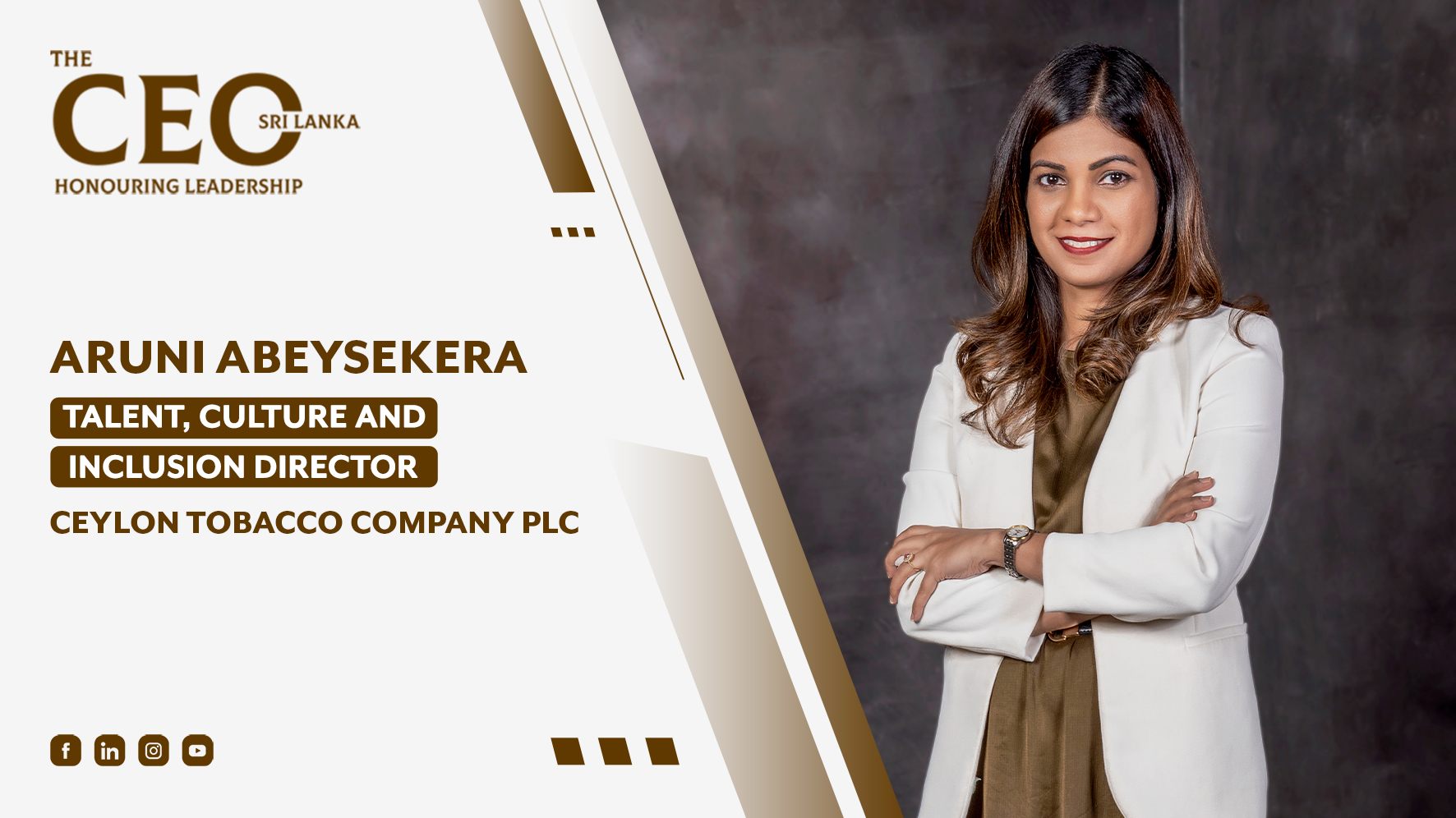In the spotlight, Aruni Abeysekera, the Talent, Culture and Inclusion Director at Ceylon Tobacco Company (CTC), sheds light on key initiatives required for building and sustaining high-performing teams.
1. Can you share some of the key initiatives that an organization needs to adapt to build and maintain a high-performing team?
Building and maintaining a high-performing team is all about creating an environment where people can truly excel. I firmly believe in the role that line managers play in this process, directly impacting both team and individual growth. The key ingredients here are open communication and transparency, that creates an atmosphere where everyone looks forward to coming to work. The organisation needs to facilitate Injecting opportunities for learning and development, including challenging assignments and stretch projects, which is paramount to bringing out the best in each team member.
Identifying and nurturing top talents within the team is a strategic move, and as an organization, we prioritize investing in our people. Our comprehensive learning and development program, covering coaching, mentoring, and training, ensures a holistic approach to individual growth, contributing to the creation of a high-performing team. At CTC, we walk the talk with robust policies, including flexible work arrangements and well-being initiatives like flexi-time and work-from-home policies. Our leadership development programs, like Leading Self and Leading Teams, are not just box-ticking exercises; they’re designed to support individuals in reaching their highest potential. Recognizing and rewarding the right people, in the right way, is the glue that empowers and sustains a high-performing team. In the end, it’s the organization’s culture and work environment that takes centre stage in developing and retaining high-performing individuals and teams.
2. How does CTC approach skill-building and continuous learning opportunities for it employees? Are there specific strategies or programs in place to ensure that the workforce is equipped with the skills needed for both current and future challenges?
In steering CTC’s approach to skill-building and continuous learning, my focus remains on cultivating a forward-thinking culture that places a premium on personal and professional development. Leadership development stands out as a key pillar, starting from self-leadership to guiding teams and advancing to higher levels. Ensuring the right talent occupies the right positions is paramount, necessitating interventions that cover functional skill capabilities and competency frameworks. General skills such as line management capabilities, listening skills, and empathy form the foundation for individuals to effectively manage others and teams.
Establishing a comprehensive glide path with a tailored development plan, considering the employee’s life stage and real-time factors like mobility is instrumental. Short to mid-term development interventions are strategically implemented, with regular skills and performance assessments providing valuable insights for personalized development plans. Crafting a talent pipeline aligned with future business requirements is a proactive measure, anticipating and recruiting individuals with the potential skill sets needed. At CTC, we foster a culture of continuous learning by providing access to diverse learning platforms, online courses, and resources. Encouraging employees to take ownership of their learning journey within the organization’s agenda ensures a dynamic and adaptive workforce. These strategic initiatives collectively empower our workforce to address current and future challenges, contributing significantly to the organization’s ongoing success.


